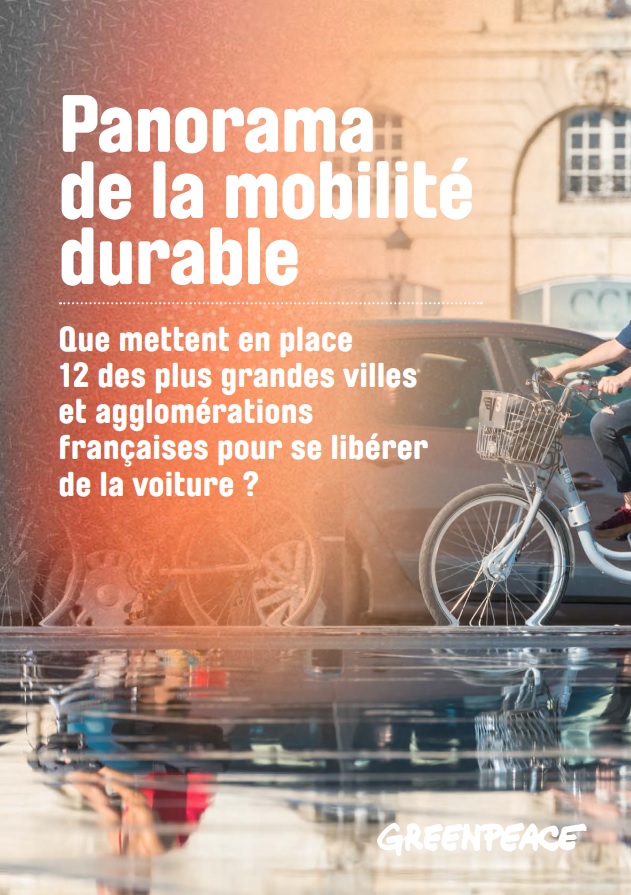Presentation
France has just been referred to the European Court of Justice by the European Commission for repeatedly exceeding air quality standards in a number of its conurbations, after numerous warnings.
Action against air pollution is urgently needed: everyone’s health is at stake. While this obviously presupposes that the government commits to a truly ambitious policy for sustainable mobility, and that carmakers are finally held to account, France’s major cities and conurbations must and can also take action. They are lagging far behind in the fight against the excessive use of cars for travel and in public spaces.
If they are to regain their breathing space, they need to organize the introduction of low-emission zones (with no diesel or petrol vehicles) as soon as possible, and support the development of alternatives to the private car, so that this transition benefits everyone.
The panorama of sustainable mobility produced for the first time by Greenpeace in France examines the actions of 12 major French cities and conurbations in this field: Bordeaux, Grenoble, Lille, Lyon, Marseille, Montpellier, Nantes, Nice, Paris, Rennes, Strasbourg and Toulouse. With the support of the Climate Action Network, we assessed the position of these cities and conurbations on the gradual phase-out of diesel and then petrol vehicles, which are fuelling climate change and air pollution.
We also consulted some twenty local associations. We gathered together their views and analysis of the actions and dynamics driven by their elected representatives (city and/or metropolis) in terms of sustainable mobility: associations promoting or defending public transport users (members of the Fédération Nationale des Associations d’Usagers des Transports) and associations promoting cycling (mostly members of the Fédération française des Usagers de la Bicyclette).
Three key issues, which for Greenpeace are the markers of a fair and well-established transition towards alternatives to the individual car, were evaluated: strengthening the public transport offer, setting up a bicycle express network, and encouraging behavioral change towards reduced use of the individual car.



